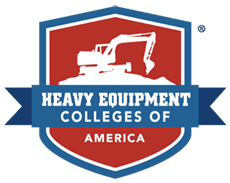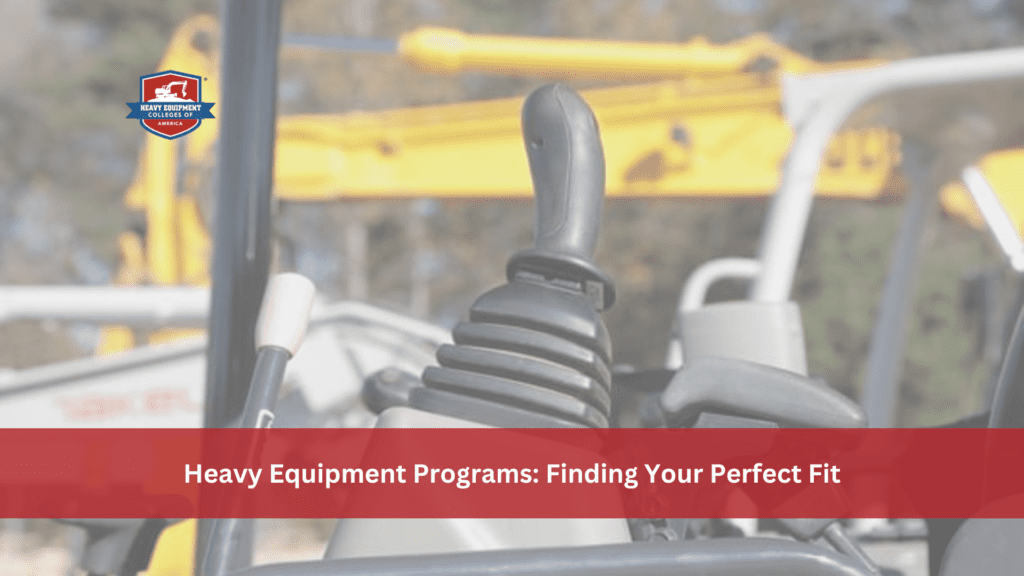Did you ever play with toy dump trucks and bulldozers as a kid and move piles of dirt around in your backyard? How would your inner child feel if you could get paid to do that every day as your job?
Lucky for you, it’s not just a dream! The construction industry is always looking for qualified heavy equipment operators to take control of the cranes and trucks. It all starts by enrolling in the proper training program and earning the necessary certifications.
With so many heavy equipment training programs available, how do you know which is the right one for you? Heavy Equipment Colleges of America is here to give you all the information you need. We’ll go over the different types of heavy equipment training as well as offer tips to help you narrow down the program that’s the perfect fit for you.
Table of Contents
Different Types of Heavy Equipment Operators
The term “heavy equipment operator” is an umbrella term that covers a list of various jobs. Certain operators work with certain equipment, and each requires their own training and certifications to operate safely. Common heavy equipment specializations include:
- General Equipment Operators: These operators have the versatility to work with a variety of equipment based on the job site and what’s needed. They need skills with multiple pieces of machinery, including their functions and individual safety protocols.
- Excavator Operators: As the name suggests, these operators work primarily with excavators. These massive machines are used for digging, demolition, lifting, and moving materials, as well as other various tasks.
- Paving and Surfacing Operators: Surfacing operators use asphalt pavers and rollers to help construct roads, ramps, overpasses, and bridges. This machinery presses and smooths out fresh asphalt to create a seamless finished product.
- Material Handling Operator: Material handling equipment includes forklifts and various cranes, and these operators help move construction materials around a job site. They play a crucial role in job site productivity, safety, and efficiency.
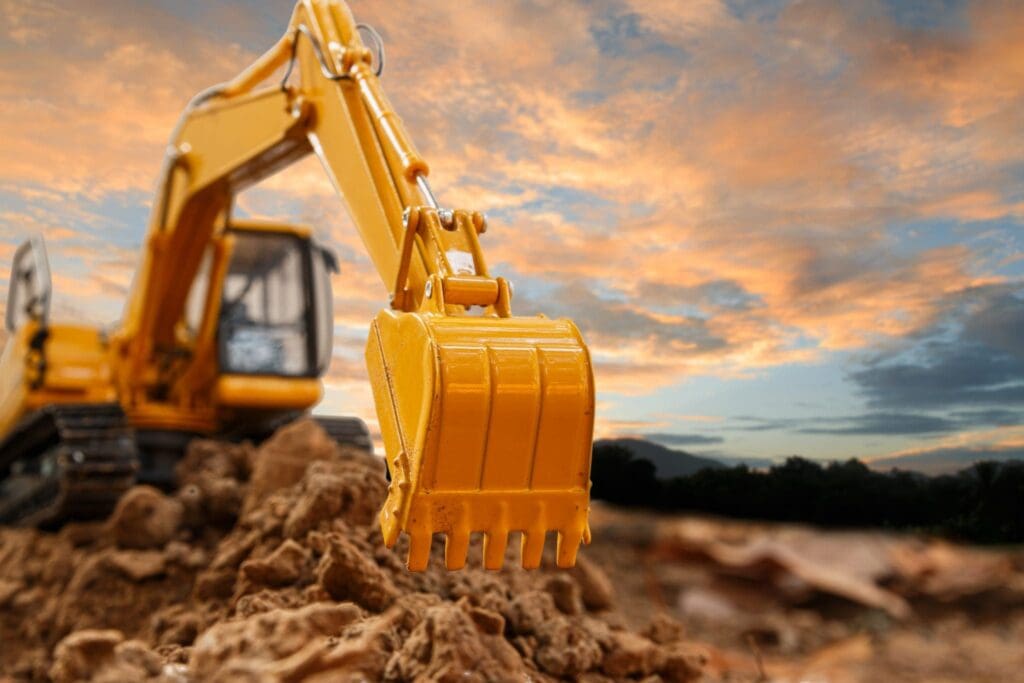
Who Needs Heavy Equipment Training?
The short answer is that anyone interested in working with heavy machinery needs to have the proper training. Working with this equipment comes with an inherent risk, and you need the proper experience and training to keep yourself and others safe on the job site. Employers look for candidates with certifications and formal training, as this proves you’re a qualified and skilled worker.
The Occupational Safety and Health Administration (OSHA) requires all heavy equipment operators to have certain levels of formal training. The specific requirements vary depending on the exact machinery you want to work with. Some general certifications and qualifications that may be required include:
- A Valid Driver’s License
- OSHA Certification
- Equipment-Specific Certifications
- Industry Experience
How to Find Your Perfect Fit Heavy Equipment Training Program?
There are several heavy equipment programs available, each with a variety of considerations. Take the time to explore your options and see what programs are available in your area. Here are some basic steps you can follow to help you find the perfect fit.
1. Decide Which Heavy Equipment You Want to Learn
First things first, you need to know what type of heavy equipment you want to work with. As mentioned earlier, different pieces of machinery have different training and certification programs, and you want to make sure you pick the right one.
If you’re interested in digging holes, you may want to look for training programs that focus on excavators or backhoes. For people who want to lift materials and work with massive tower cranes, there are specific certifications you’ll need for cranes.
Figure out what kind of heavy equipment you want to work with, and find a training program that focuses on that. Common types of heavy equipment you can get formal training for include:
- Bulldozers
- Excavators
- Forklifts
- Cranes
- Backhoes
- Dump Trucks
- Asphalt Pavers and Rollers
- Loaders
- Skid Steers
- Scrapers
- Road Graders
2. Search for Heavy Equipment Schools
Once you know what you want to study, it’s time to look for heavy equipment schools that offer the program. Research schools that interest you and see if their programs align with what you’re looking for. There are tons of schools in your area, so look there first before extending your search radius. Look into trade schools or community colleges that may offer the program you’re looking for.
Heavy Equipment Colleges of America is a great starting point for your research! With campuses across the United States, we have an extensive catalog of heavy equipment training programs and certifications to fit your interests. Whether you want to work with cranes or bulldozers, our nationwide school will help you get your foot in the door to a successful career in the construction industry.
Join HEC Today!
Accelerated Programs | Multiple Locations | Job Placement Help
Open The Door To A New Career!
Start Enrollment ProcessFind The Right Location For You3. Talk with an Admissions Representative
Your first wave of research should include looking at a school’s website and seeing what heavy equipment training programs they offer. However, there’s only so much a school can fit onto a web page. While these give you a great snapshot of the programs, you’ll need to talk with someone from the school to get a better idea of how these programs are structured.
Both trade schools and community colleges have a team of admissions representatives who are there to answer any questions you may have. Their job is to know the ins and outs of the school’s programs and admissions process, and they’re there to help you. You can schedule a meeting with one of these representatives online and have the opportunity to ask all of your questions.
4. Go on a Campus Visit
Once you’ve narrowed down your choices to your top few, take the opportunity to visit the campus. Most schools have daily or weekly campus tours where you can see every aspect of the campus with a guide. You can also observe classes and talk to current instructors and students. They can give you an inside look into how classes look, what people think of the program, and what you could expect as a new student.
While looking around campus, read up on reviews for the program and compare them to other schools. Look for positive reviews that talk about the effectiveness of the program and the quality of the education. You can also get in touch with program coordinators to get more information on the program’s structure and learning curriculum.
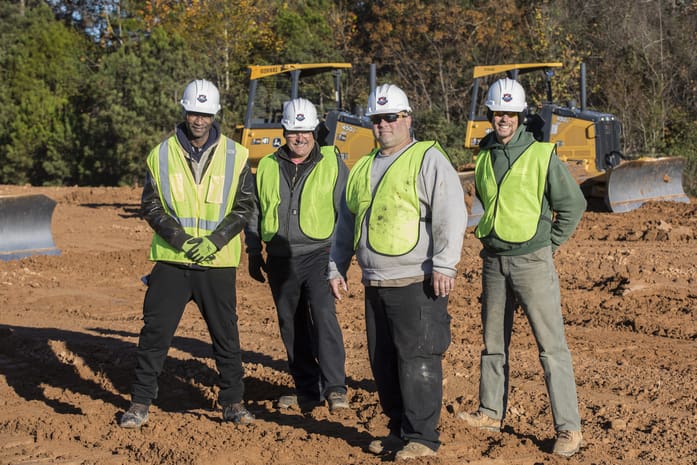
5. Enroll in a Program That You Want to Learn:
After collecting all of the information you need, you can make an educated decision on where you want to get your heavy equipment training or certification. The school you choose will have its specific application processes and deadlines, so work with their admissions representatives to ensure you get everything you need to build a strong application. Then, take the first step into your new career.
At Heavy Equipment Colleges of America (HEC), we pride ourselves on creating a productive learning environment that sets you up for a successful career in the construction industry. Our heavy equipment operator training programs include:
- Certificate of Heavy Equipment Operations- Level 1
- Certificate of Heavy Equipment Operations- Level 2
- Certificate of Heavy Equipment Operations- Mobile Crane
- Certificate of Heavy Equipment Operations- Tower Crane
- Certificate of Heavy Equipment Operations- Lattice Boom Crawler Crane
- Certificate of Heavy Equipment Operations – Horizontal Directional Drilling
- Associate of Occupational Science in Heavy Equipment (AOS)
There You Have It!
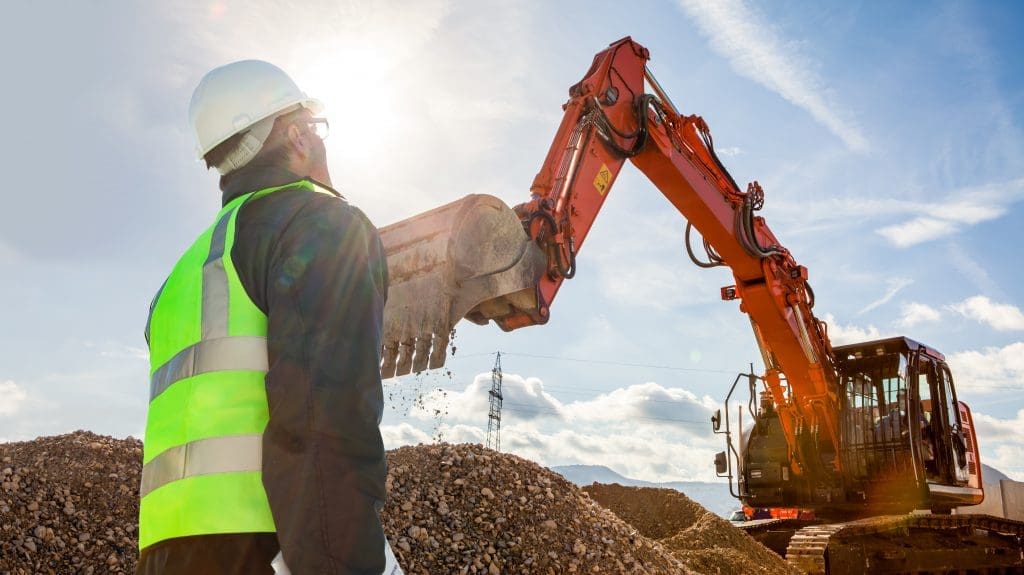
These tips should help you be on your way to a successful and fulfilling career as a heavy equipment operator. With the right program, you could begin your new career in just a few weeks, with the qualifications to move up the ladder. Whether you want to operate a mobile crane or a forklift, there’s a program out there for you!
Bonus Tip:
Need help finding an HEC location near you? If you’re not sure where to begin or are looking for advice on which program is a good fit for you, the Heavy Equipment Colleges of America is a great place to start! Get in touch with us today to schedule a meeting with one of our admissions representatives to get the ball rolling.
Join HEC Today!
Accelerated Programs | Multiple Locations | Job Placement Help
Open The Door To A New Career!
Start Enrollment ProcessFind The Right Location For You